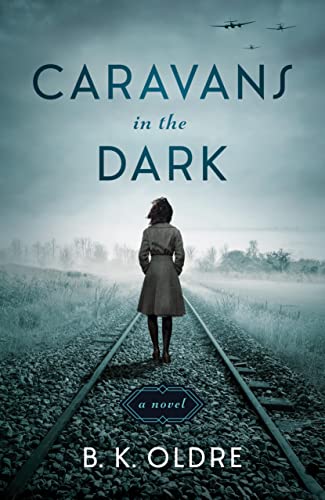Caravans in the Dark
This novel centers on the invasion of Czechoslovakia after the 1938 Munich Agreement that allowed Germany to occupy the young Czech Republic and enslave its inhabitants. The Germans’ plan included closing all Czech universities and eliminating people they thought undesirable, including Jews and Romani.
Oldre’s intent is to focus on the victimization of the Roma people, which has not been well documented. The main characters are a Roma family of horse traders who come to Prague. Jana, the fifteen-year-old daughter, is a willful individual who wants her independence and resists the traditional expectation of marriage. Her cousin, Otto, wants a university education so he can better himself and his family.
Oldre does an excellent job of describing how the Nazis manipulate the Czechs more and more, eradicating their rights and coercing them to obey their new masters. But it is difficult to develop a personal narrative against the backdrop of a national tragedy. In this case, while the plot follows the young Romani as they get caught up in the political conflict, they are not developed enough to become realistic or sympathetic. Rather, they seem to be actors used mainly to move the plot forward. The novel ends abruptly when Hitler invades Poland and Britain enters the war. The young couple are left in an unsatisfying limbo.
On a bright note, a subplot includes a young German soldier, Franz, who is sympathetic to the Romani because he has worked with them on his father’s vineyard. Franz perfectly captures what a young man must feel when he finds himself fighting in a foreign land for a reason he cannot explain to himself.










